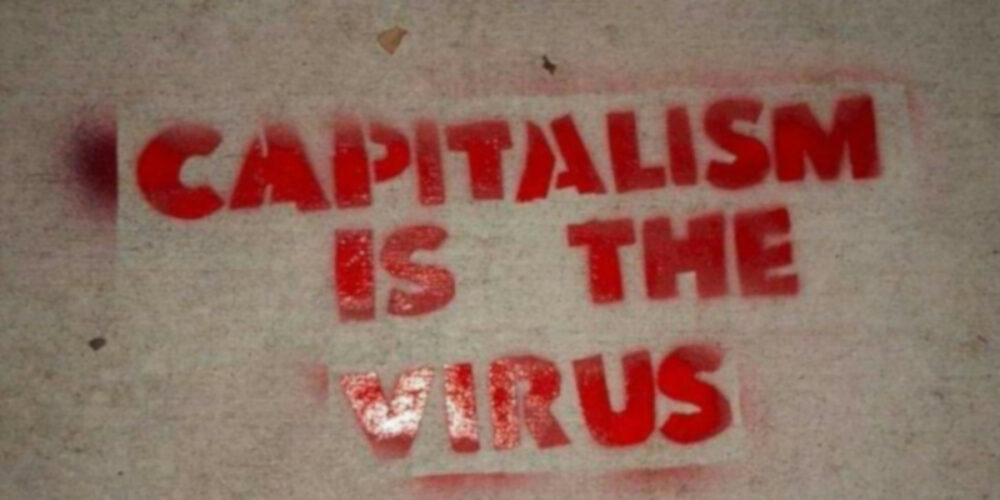The housing crisis has laid bare the ruthless nature of capitalism, its parasitic and exploitative nature. There is simply no lengths it will not go to to secure its interests, to secure profits and the further accumulation of capital.
But the housing crisis has exposed not only the real nature and the underlying interests of capitalism as a system but the nature of government, whose primary role is that of an instrument for securing the best conditions for the accumulation of wealth for a small minority. All other actions are secondary.
Property speculation is now an important area for profit growth and further capital accumulation through constant rent increases. There is simply no point in investing if you can’t get a return on that investment. It is also the nature of the system that there needs to be constant growth in that investment. It simply cannot remain static.
What has also been exposed is the subservience of the government to these powerful economic interests. This is best reflected in the comments by the Tánaiste, Leo Varadkar, when he said there needs to be a “balance” between the regulation of property rental costs and income for landlords.
“I’m not a landlord myself,” he said, “but there are others who rely on rental incomes . . . So we need to balance that too. One person’s rent is another person’s income. It might be their pension, it might be how they pay their mortgage…
“In a time of rising prices and in a time of rising interest rates, and that hasn’t come yet but it will come, if you freeze rents absolutely to zero, that could mean an income cut for another person, a pension cut for another person…”
Earlier, Micheál Martin had said that Fianna Fáil had received advice that a rent freeze would be unconstitutional. Once again, the right of private property interests trumps the rights and interests of working people.
His comments exposed the real parasitic nature of the system, forcing people to feed off each other. The corporate vulture funds are being encouraged to invest in property speculation, and government strategy is to facilitate them. The consequence will be a further concentration of wealth and monopolisation of property ownership. The very process of capital accumulation leads to a growth in monopolisation.
Another example of the cosy relationship between the state and private speculators and developers is the case of the Irish Glass Bottle site, a 37-acre site in Ringsend, one of the last large pieces of development land left in Dublin. Up to 3,800 homes are planned for the site, with reports now emerging of an agreement reached in June between Ronan Group Real Estate, Oaktree Capital Management, Lioncor Developments, and the National Asset Management Agency (NAMA). It now appears that the “affordable” houses that are to be built at the Poolbeg site will cost the city council €600,000 each. In other words, it will pay the full commercial price. This was all publicly owned land, owned by NAMA.
As the employers’ organisations, government spokespersons and media commentators keep telling working people that there’s no such thing as a free lunch, and that people on welfare etc. should get out and get a real job, it’s time the local gombeen landlords got real jobs rather than living on the backs of working people.
The government’s strategy of linking rents to inflation has now come unstuck as inflation has reached a ten-year record, thanks to a number of factors, including an interruption in global supply and the increased cost of commodities around the globe, in particular oil and gas. Both corporate and private landlords will benefit and be able to increase rents substantially.
Meanwhile workers’ wages remain static, or further eroded by increased gas and electricity prices, increasing food prices, and spiralling rents. This is not just an Irish problem but stems from a set of policies—neoliberalism—adopted forty years ago. This strategy was presented as the solution to the underlying problem of the declining rate of profit. It required opening up new avenues for capital speculation—privatisation—driving down workers’ wages globally, intensifying the exploitation of both labour and natural resources, and securing cheap food from the destruction of local food production in the developing countries to supply the northern metropolitan markets.
The Irish housing crisis is part of the same process within the system itself. The only democratic solution is
- the building of public housing at affordable rents,
- establishing a state-led building company,
- banning the sale of the existing housing stock,
- banning the sale of public lands,
- banning economic evictions,
- enshrining the right to public housing in the Constitution, and
- a Bill of Rights for tenants.






